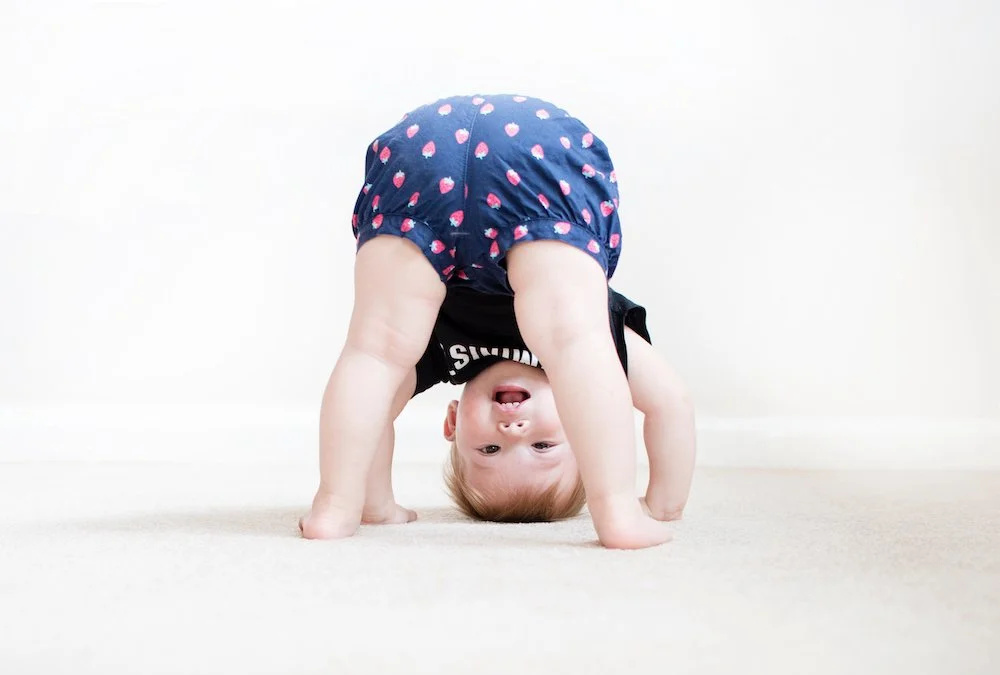Why do they do that? Say they didn't poop (when they so clearly did!).
Poop is Personal (Especially for Toddlers)
Let’s talk about poop.
Yes, really. If you're parenting a toddler, poop is probably already taking up more of your headspace than you ever imagined. Whether it’s the diaper change resistance, the “hide in a corner” poops, or the sudden refusal to go at all, this basic bodily function can quickly become an epic daily struggle.
So why is poop such a big deal for toddlers?
Well, for starters, pooping is weird. It feels weird, it smells weird, and it’s not something kids can actually see happening. Imagine having a part of your body doing something unpredictable, invisible, and out of your control—and then someone else swooping in to clean it up. That’s a lot for a little person to process.
Now add in the fact that toddlers are in the middle of this giant developmental leap where they’re figuring out that they are separate from you. They want control. They want choice. And you know what’s one of the few things they can control? When and where they poop. (Or don’t.)
So when you say, “Let’s go change your diaper,” and your toddler suddenly turns into a full-body protest tornado… it’s not just about the diaper. It’s about autonomy. And sensory input. And maybe not wanting to pause the extremely important task of driving a toy dump truck over a pile of couch cushions.
Let’s Stop Asking: “Did You Poop?”
This one’s subtle, but it matters. Many of us ask this question—“Did you poop?”—as a routine check-in. But think about what that question actually does: it invites your child to say “no” when you already know the answer. That sets up an unnecessary power struggle and subtly frames the situation as something they should have a choice about—even when they don’t.
It can also plant the idea that talking about poop is weird or shameful. Because if we keep asking like it’s a secret, our kids start to think it’s something to hide.
Instead of asking, try a neutral, confident statement:
🗣️ “I smell poop. Time for a diaper change.”
or
🗣️ “Looks like you pooped—let’s get you cleaned up.”
No accusation. No shame. Just matter-of-fact and moving forward. We want kids to feel safe being taken care of, even when it’s about something as personal as poop.
One strategy that can help:
If your child really hates having their diaper changed, it’s okay to slow the process down just a bit. You can give them a moment to feel seen before you swoop in.
Try this:
🗣️ “I hear you. You DO NOT want your diaper changed right now. You’re really into what you’re doing.”
Then, give a little heads-up:
🕐 “I’m going to give you one more minute to play, and then it’ll be time.”
Use a visual timer if your child responds well to them, or just keep it casual.
After that minute, follow through. Acknowledge their feelings as you change them:
🗣️ “You are SO mad right now. I know, diaper changes are the worst. I’m going to do this quick so you can get back to your truck.”
Then do exactly that—get in, get out, get them back to what they were doing.
What this does is twofold: it gives your child a sense of control (even within a non-negotiable boundary), and it lets them know that you’re attuned to what matters to them. You’re not ignoring their “no”—you’re honoring it and holding the limit.
Other Things That Help:
- Have a changing station in the playroom or living room. Sometimes the protest is about the transition away from fun, not the diaper itself.
- Offer a “special toy” only for diaper changes—something novel or engaging that keeps their hands busy while you do the quick work.
- Narrate what you’re doing in a calm, steady voice: “I’m wiping now… one more second… all done!”
- Let them help if they’re ready: “Can you grab the diaper for me?” or “Want to hold the wipes?”
And remember: this phase doesn’t last forever. Eventually, diapers become toilets, and “NOOOOO!” becomes “Can I have some privacy?” But in the meantime, a little empathy and a lot of patience go a long way.
Poop is personal. Let’s treat it that way—even when it’s literally everywhere.
Do you have questions about your child’s development or your parenting? Scheduled a free 15-minute call with me here ⬇️
